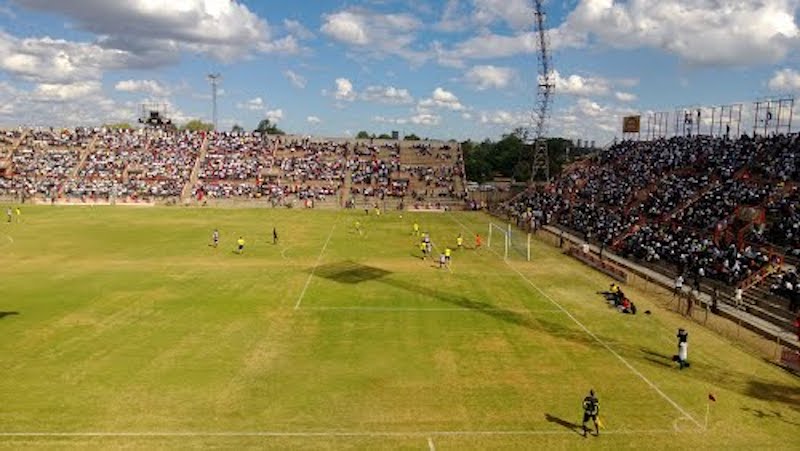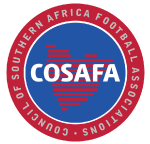
2017 COSAFA Women’s Championship tournament preview
The 2017 COSAFA Women’s Championship promises to be a festival of football and a celebration of the great strides made in the women’s game in recent years when it is played in Bulawayo, Zimbabwe from September 13-24.
A record field of 12 teams, including East African guest nation Kenya, will showcase the quality of footballers in the region as teams build for the African Women’s Championship qualifiers that start early next year.
Zimbabwe, which has hosted the competition twice before in 2002 and 2011, when they ended South Africa’s run of three straight titles by lifting the trophy, will be a fitting stage for the tournament as one of the powerhouse nations in the region.
The COSAFA Women’s Championship is a continuation of COSAFA’s aim of developing football at all levels in the Southern African region and returns after a six-year hiatus that left many nations with little or no international action.
A number of teams competing in Bulawayo have been mostly inactive for the last 18 months or more, and so this regional championship provides them with vital competition they would otherwise not get.
And for the traditionally more successful nations such as South Africa, Zimbabwe and Zambia, the COSAFA Women’s Championship gives the opportunity to expand their pool of players by giving a number of youngsters a chance to compete on what is a fantastic stage.
The 12 nations have been drawn into three pools each containing four sides, with the group winners and the best-placed runner-up advancing to the semifinals, where it reverts to a knockout format.
Hosts Zimbabwe, who qualified for the 2016 Rio de Janeiro Olympic Games last year, will compete against two-time bronze-medallists Zambia, Madagascar and Malawi.
Zimbabwe coach Sithethelwe Sibanda says they have targeted retaining their trophy and preparations for the competition have been relatively smooth. “Preparations have gone well for us so far,” she told reporters. “We had some minor injuries and knocks on players but everyone is back at training and hope we all head into the games without any injuries.
“We set ourselves a target of reaching the final. We have been focusing on that and in camp we feel that is an achievable objective. “Some would view our achievement of making it to the Olympics to mean we are better and when they face us they raise their game which means that we’ve to guard against complacency and fight. We don’t want to be our downfall.”
Zambia coach Albert Kachinga believes his side will provide a stern test for the hosts.
“We have played Zimbabwe on several occasions. We have lost and we also won some games. The chances are 50-50, but with adequate preparations and with a good mind-set we can beat them,” he said.
“These days, there are no easy games; it is a fair draw. There is no team which can underrate the other. We have to work extra hard so that we can pull through. All the teams are good for them to play at the tournament.”
Group B contains Kenya, Mauritius, Mozambique and Swaziland in what will be a tough pool to predict.
Kenya coach Richard Kanyi has included a mixture of youth and experience in his squad, and says they are looking forward to being the second East African side after Tanzania to compete in the regional championship.
“We have had good preparations, and our objective remains reaching the semi-finals of this competition,” Kanyi says. “Some of the players who are not in the final list were dropped either due to technical reasons or private ones that are not to be shared publicly.
“We are, however, left with a good squad players and I know we shall perform well in the competition.”
Group C will be a battle between South Africa, Namibia, Lesotho and Botswana, with the former likely to be heavy favourites given their pedigree in the competition. “Camp went very well, we had a couple of very good sessions,” South Africa coach Desiree Ellis said. “Not playing a game is a bit of a setback but we had a practice match against boys from the School of Excellence and it was a good exercise as it showed us a couple of things that we still need to work on, and we will fix those before we face Lesotho.
“The good thing is that the bulk of the team is made up of players who have been in the squad before so it’s a continuation. We also have a few who have just returned from the World Student Games in Taipei, and they are looking much stronger and energized, which augurs well for us in the tournament.”
Namibia have proven hugely competitive in the competition in the past and Coach Brian Isaacs is confident they will do so again.
“I’m positive the ladies will do us proud in Zimbabwe,” he said. “We have done all we could in terms of preparations and they have what it takes to reach the next round. “Facing Botswana, Lesotho and South Africa will be challenges we need to overcome as a team and the ladies know they need to believe in their own abilities for us to achieve this.
“Most of the ladies in the team featured at the continental showpiece [African Women’s Championship] in 2014 and have since played in some qualifiers and that exposure and experience can only do us good. The team has been part of regular visits of Germany over the years and that can also give us an edge.”

